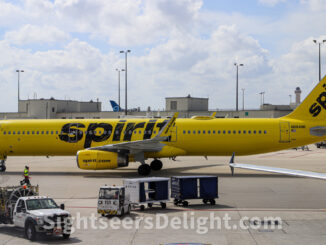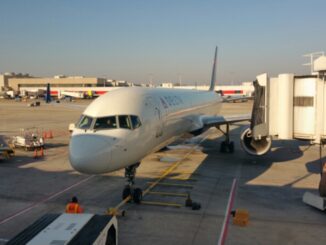New legislation aims to increase transparency of hidden airline fees.
U.S. Sen. Jim Webb, D-Va., said he introduced the “Airline Baggage Transparency and Accountability Act” in response to passengers’ concerns about hidden fees and mishandled baggage. In 2008 and 2009, airlines reported approximately $7.9 billion in revenues from baggage fees and reservation change and cancellation fees — the two largest sources of fee revenues, according to Webb.
“In recent years, airlines have been adding various fees to the total ticket prices, often without fully disclosing these additional costs to customers,” Webb said in a statement. “In addition, airlines have exploited a tax loophole which enables them to avoid paying taxes on these fees. This not only adds confusion to purchasing tickets, but also reduces funding for our nation’s vital air traffic control system.”
According to Webb, the new legislation would:
- “Increase transparency of hidden fees for airline ticket sales”
- “Eliminate a tax loophole that incentivizes airlines to charge carry-on and checked baggage fees. The fees would instead be treated as ‘paid for taxable transportation’”
- “Authorize the Department of Transportation’s Aviation Consumer Protection Division to oversee lost and stolen baggage claims”
- “Require data collection and the public release of collected data concerning airline handling of lost, damaged and stolen baggage”
While a number of airlines in recent years have started charging customers to check bags or purchase snacks, Spirit Airlines in March announced it wanted to start charging passengers to store carry-on items in overhead bins. In 2009, airlines made more than $3 billion from fees, money which is not subjected a 7.5 percent federal excise tax that funds the Airport and Airway Trust Fund, which supports the Federal Aviation Administration, according to a Government Accountability Office report.
“One of the main reasons airlines have made our skies the Land of the Fee, by imposing so many fees on passengers to pad their bottom line, is that they have not had to pay taxes into the Aviation Trust fund for them as they do with other revenue,” Kate Hanni, founder and executive director of FlyersRights.org, said in a statement. “By closing this loophole the airlines will likely reevaluate how many fees they impose on us, and when they do at least a percentage will be going to improve and maintain our aviation system.”
In addition, carry-on and checked baggage fees would be considered as an amount paid for taxable transportation.
“For years the airlines have not been required to fully and plainly disclose what the true total cost of a flight is including all the fees and extra charges, keeping passengers in the dark and distorting the marketplace,” Hanni said. “The Webb bill also brings needed clarity for passengers on fees as they make their choices for air travel and brings the airline sector into line with recent efforts requiring full and fair disclosure by credit card companies to consumers about fees.”




